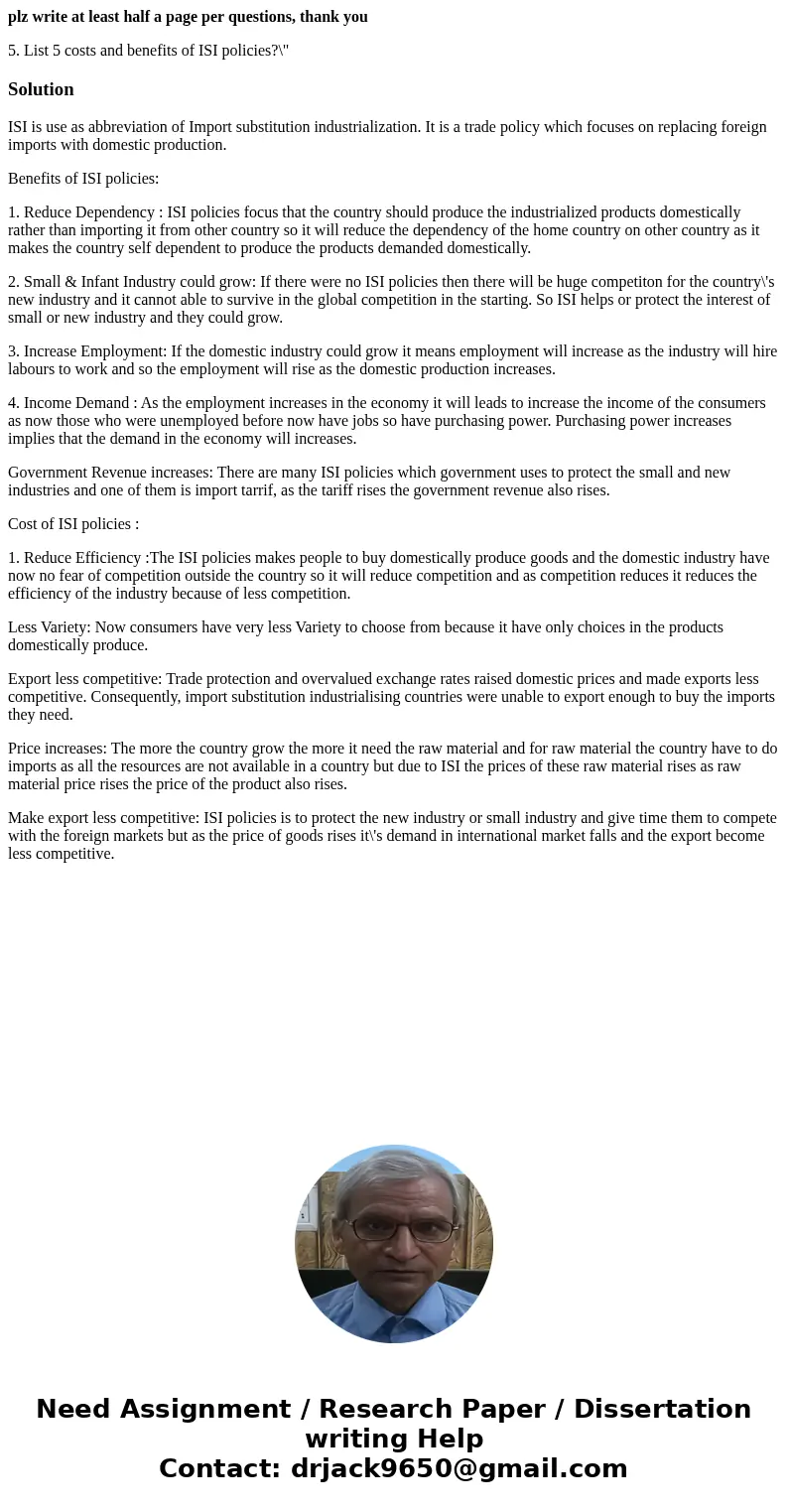plz write at least half a page per questions thank you 5 Lis
plz write at least half a page per questions, thank you
5. List 5 costs and benefits of ISI policies?\"Solution
ISI is use as abbreviation of Import substitution industrialization. It is a trade policy which focuses on replacing foreign imports with domestic production.
Benefits of ISI policies:
1. Reduce Dependency : ISI policies focus that the country should produce the industrialized products domestically rather than importing it from other country so it will reduce the dependency of the home country on other country as it makes the country self dependent to produce the products demanded domestically.
2. Small & Infant Industry could grow: If there were no ISI policies then there will be huge competiton for the country\'s new industry and it cannot able to survive in the global competition in the starting. So ISI helps or protect the interest of small or new industry and they could grow.
3. Increase Employment: If the domestic industry could grow it means employment will increase as the industry will hire labours to work and so the employment will rise as the domestic production increases.
4. Income Demand : As the employment increases in the economy it will leads to increase the income of the consumers as now those who were unemployed before now have jobs so have purchasing power. Purchasing power increases implies that the demand in the economy will increases.
Government Revenue increases: There are many ISI policies which government uses to protect the small and new industries and one of them is import tarrif, as the tariff rises the government revenue also rises.
Cost of ISI policies :
1. Reduce Efficiency :The ISI policies makes people to buy domestically produce goods and the domestic industry have now no fear of competition outside the country so it will reduce competition and as competition reduces it reduces the efficiency of the industry because of less competition.
Less Variety: Now consumers have very less Variety to choose from because it have only choices in the products domestically produce.
Export less competitive: Trade protection and overvalued exchange rates raised domestic prices and made exports less competitive. Consequently, import substitution industrialising countries were unable to export enough to buy the imports they need.
Price increases: The more the country grow the more it need the raw material and for raw material the country have to do imports as all the resources are not available in a country but due to ISI the prices of these raw material rises as raw material price rises the price of the product also rises.
Make export less competitive: ISI policies is to protect the new industry or small industry and give time them to compete with the foreign markets but as the price of goods rises it\'s demand in international market falls and the export become less competitive.

 Homework Sourse
Homework Sourse